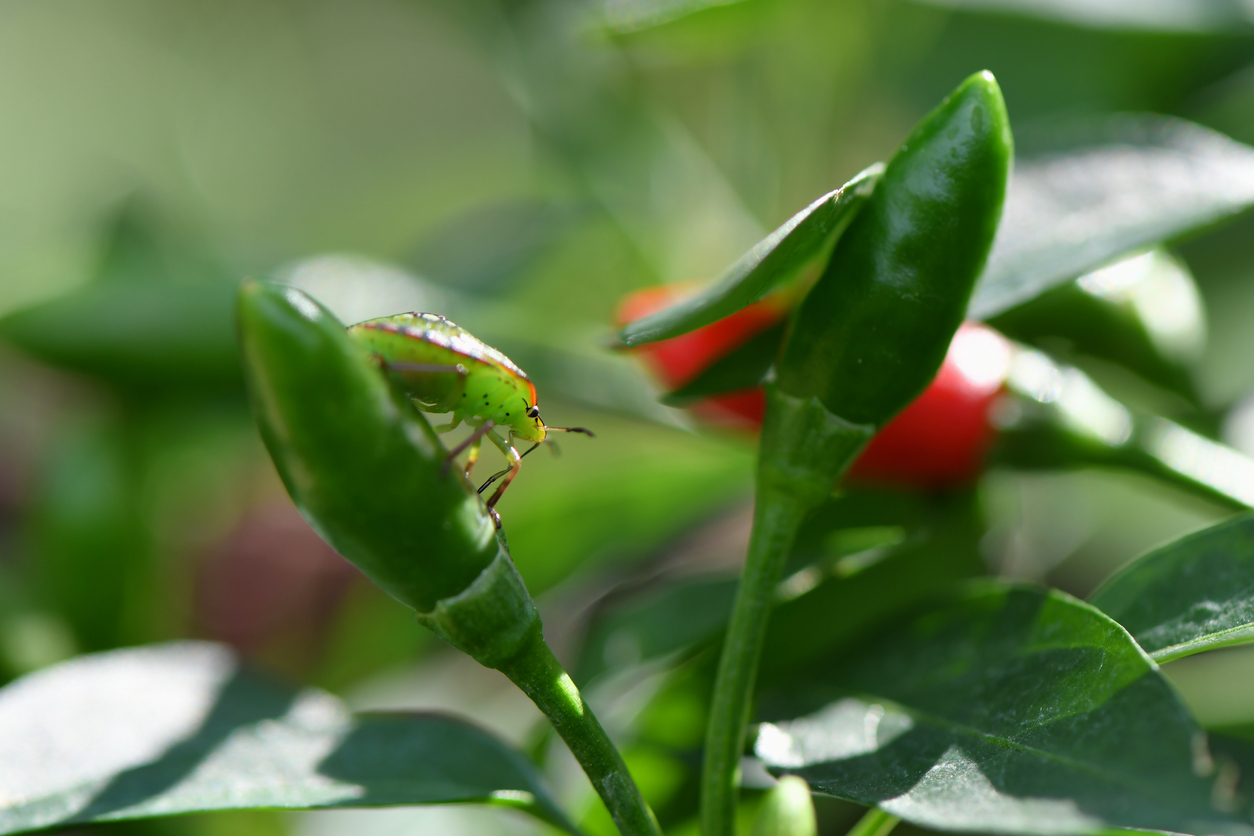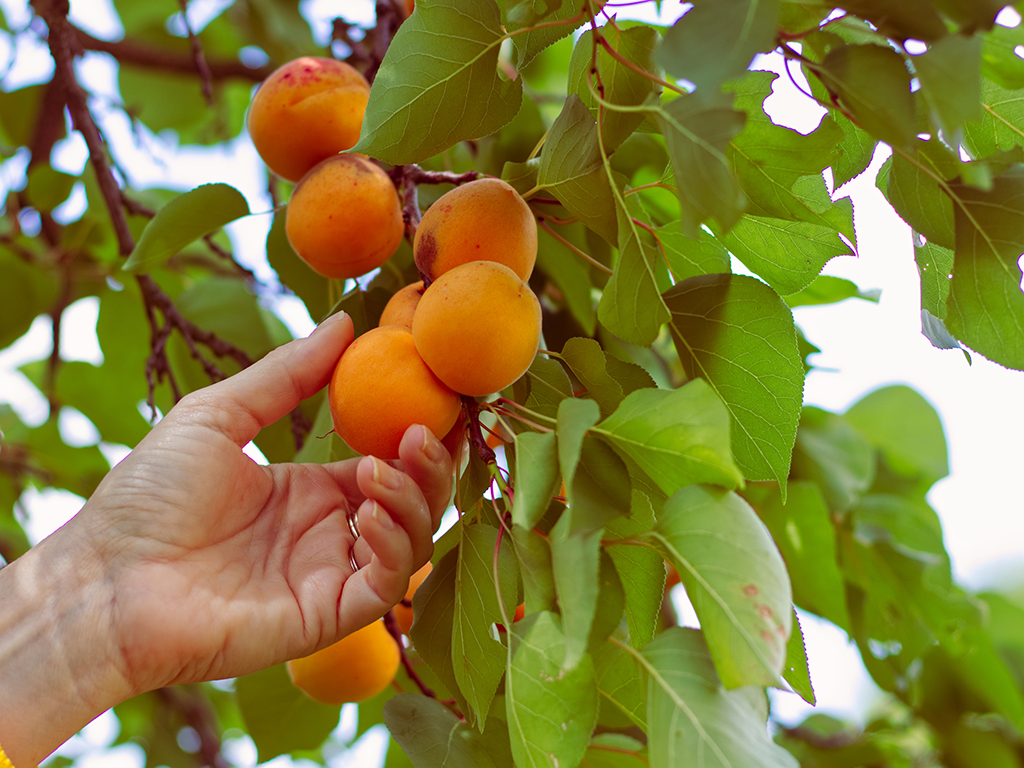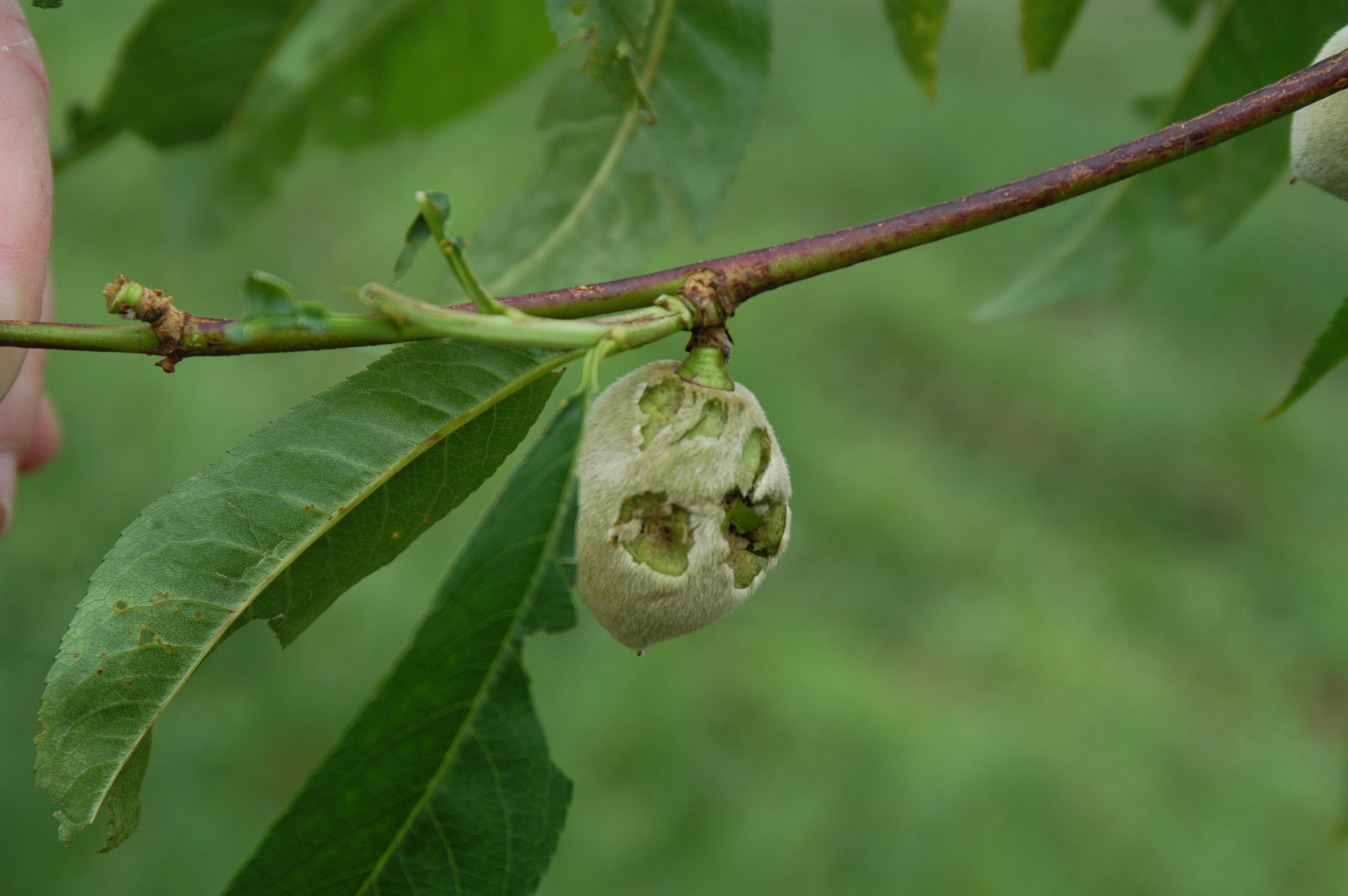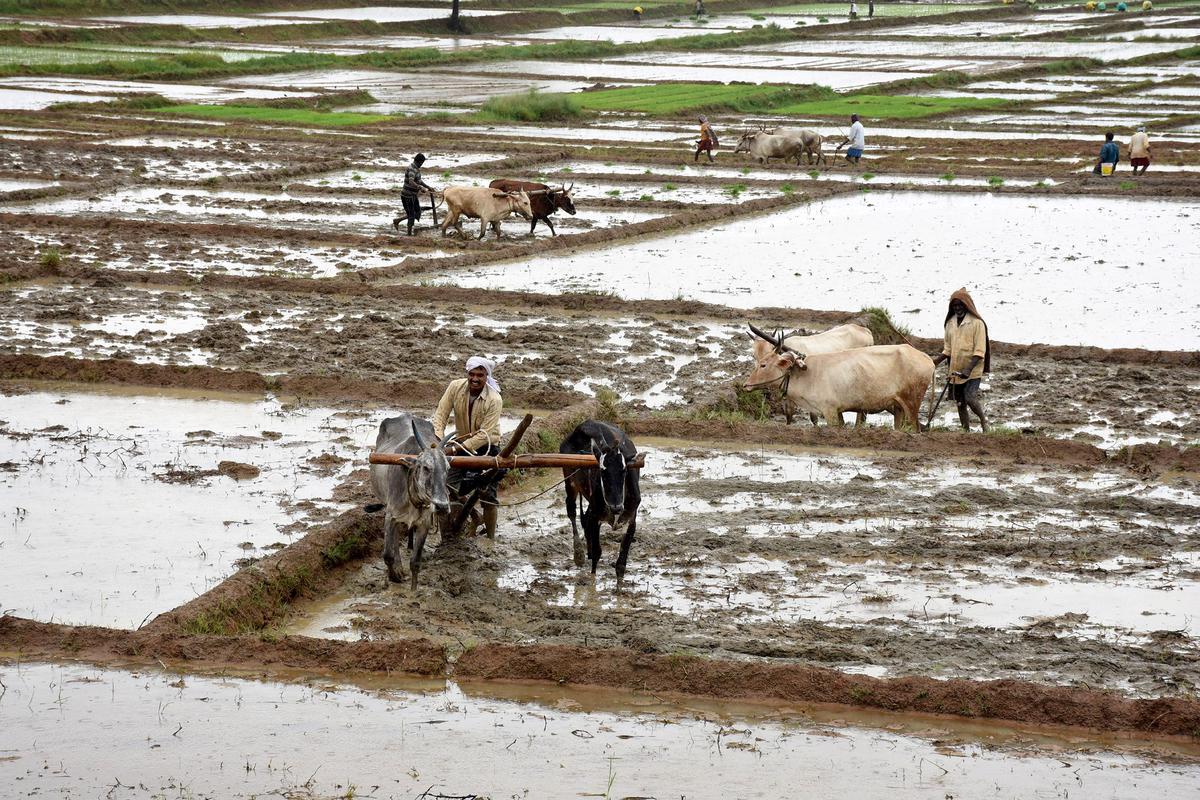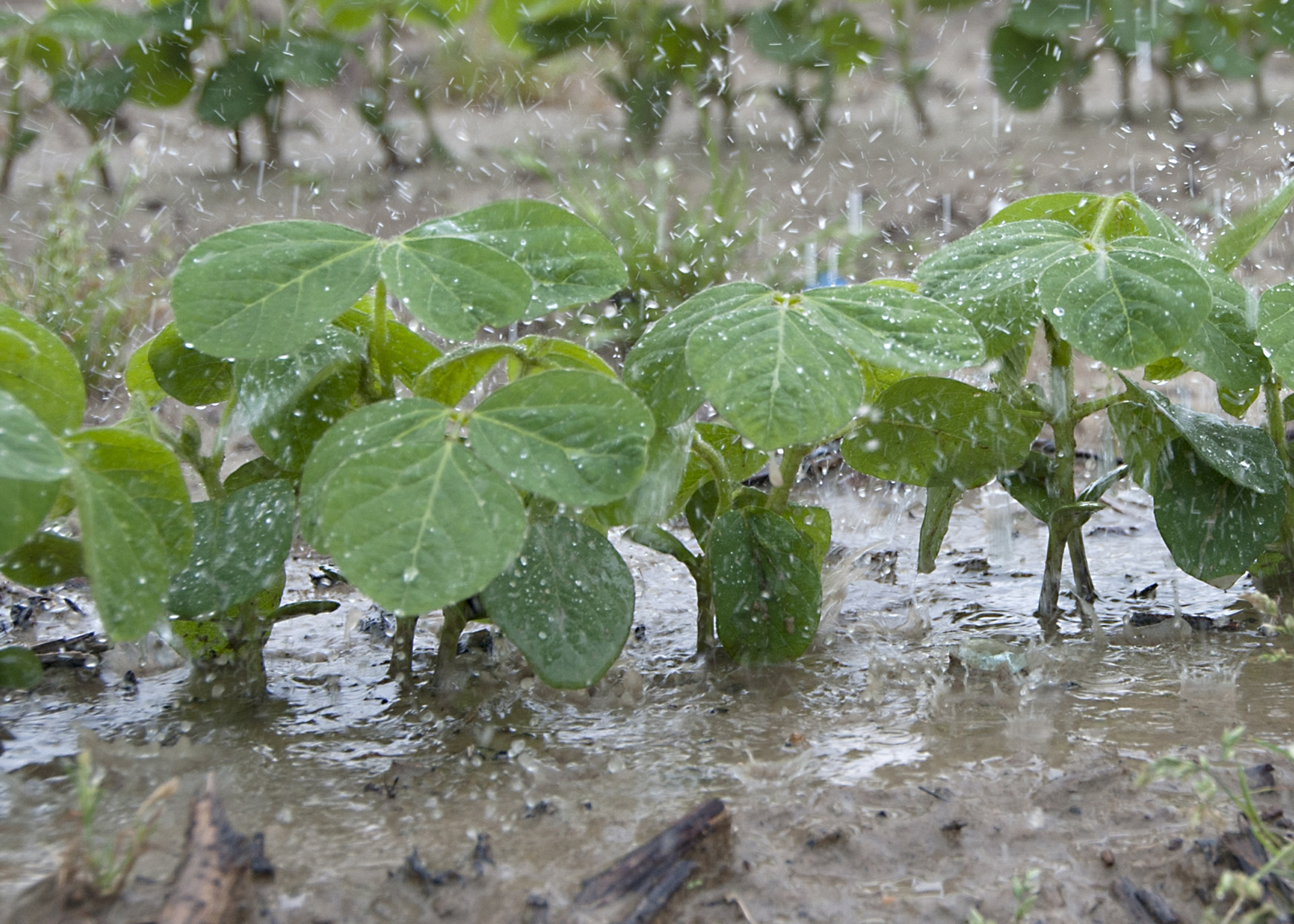Chilli farmers in Telangana’s Subakkapalli village, Bhopalapalli district, are living their worst nightmare. A new pest, black thrips (Thrips parvispinus), has destroyed over 40 hectares (ha) of standing crop in a matter of months.
In Sidduri Ravindra Rao’s farm, the initial signs of the attack were reported in the first week of December last year. He increased the frequency of pesticide spraying to three times a week from the recommended two times, but the entire crop on his 0.8 hectares farm perished within a week.
On December 15, he died by suicide. His brother Bhaskar Rao told Down To Earth that Ravindra was relying on this year’s produce to repay his loan of over Rs 20 lakh. “First, untimely heavy rainfall destroyed our crops. This season, we lost it to pest attacks,” he said.
Farmers in Jairam Thanda village in Warangal district also narrate similar stories. The black-coloured and pinhead-sized pest has ruined the entire 20 ha under chilli in the village.
Banath Venkamma, a chilli farmer from the village, says when he first saw the pest on his 0.4-ha farm, he contacted the local agriculture extension office, which recommended continuing with the existing pesticides.
“I used at least six different pesticides but nothing worked. The pest has completely destroyed 70 per cent of my crop and has partially destroyed the remainder. Usually, chillies we grow are 7 to 10 centimetres long, but this time they are barely 5 cm long,” she said.
Rapid spread
T parvispinusis, a member of the thrips group of sucking pests, is an invasive species from Southeast Asia that has been documented in different countries including Australia, Thailand and Greece.
It causes more damage than S dorsalis, the thrips pest native to India. By attacking the flowers and not just leaves, T parvispinusis removes any hope of the crop growing from it. The pest was first reported in India in 2017 when it destroyed papaya farms in Bengaluru, Karnataka.
“This is the first time it has caused such widespread destruction in the country. In the past year, its population has increased by many folds,” said V Sridhar, principal scientist at the Indian Council of Agricultural Research-Indian Institute of Horti-cultural Research in Bengaluru. He is part of the team of scientists appointed by the Centre to research the pest attack and its possible management solutions.
As per the information received by the team, since October 2021, the pest has caused widespread losses in hundreds of villages across 34 contagious districts in six states:
- Telangana
- Andhra Pradesh
- Maharashtra
- Karnataka
- Tamil Nadu
- Chhattisgarh
They have also received information about similar attacks in Gujarat. Andhra Pradesh and Telangana are, however, the worst-hit, where at least 0.36 million ha — roughly three times the size of Delhi — has been destroyed. The remaining states have not released official figures so far.
T parvispinusis is also polyphagous, which means it spreads to other crops. The Central team’s scientists visited farms in Telangana, Andhra Pradesh, and Karnataka between October and December 2021 and found the pest in sweet pepper, brinjal, black gram, pigeon pea, watermelon, cucumber, bottle gourd, mango, and cotton, among others.
“This was not on a large scale, but the presence was noted,” Sridhar said.
Without a cover
The growing spread of the pest in India is worrying for two reasons.
First, the country is the world’s largest producer, consumer and exporter of chillies and has 40 per cent of the world’s area under the crop.
Second, chilli cultivation requires huge investment ranging anywhere between Rs 2.5-3 lakh per ha.
In Telangana, most chilli farmers pay an additional Rs 20,000-25,000 to take land on lease. This year, the farmers say their investment in pesticides also shot up because of the attack. In such a situation, the crop loss has pushed many farmers to the brink.
DTE in last week of March visited six villages in four districts of Telangana and found several cases of farmer suicides. While the state government has not released any numbers, a survey by Telangana-based non-profits Rythu Swarajya Vedika and Human Rights Forum shows that more than 50 farmers have died by suicide in the districts of Warangal, Mahbubabad, Hanumakonda, Bhopalapalli, Khammam and Bhadradri Kothagudem.
In Subakkapalli village of Bhopalapalli, Bhaskar Rao blames the government for the deaths of his brother and other farmers. “Nobody came to talk to us or make us aware of the pest or how to deal with it. We were making our own guesses,” Bhaskar Rao said.
Telangana is yet to announce compensation for the crop damage. The state does not have its own crop insurance scheme and has also opted out of the Centre’s Pradhan Mantri Bima Fasal Yojana.
The state government runs the cash support scheme, Rythu Bandhu, under which Rs 12,350 per ha per season is transferred to the bank accounts of farmers ahead of the rabi and kharif seasons. Another scheme, Rythu Bima, promises Rs 5 lakh to the families of farmers who have died by suicide.
But these are not enough. Hari Krishna of the Human Rights Forum says by introducing Rythu Bandhu and Rythu Bima schemes the government has absolved itself of the responsibility for crop loss. Besides, only landed families benefit from the schemes; vulnerable landless farmers are simply not covered, he adds.
Though the state announces compensation packages during large-scale crop loss, Kiran Kumar Vissa of Rythu Swarajya Vedika says it seldom reaches people. “Farmers are still waiting for the compensation announced in January 2021 for crop loss caused by heavy rainfall,” Vissa alleged.
Ripple effect
MV Madhusudhan, deputy director of Telangana’s horticulture department, agrees that the pest attack has substantially reduced the yield of chilli this year — from the usual 5-6 tonnes per ha to 2.5 tonnes or less.
Its effect can be seen at the Warangal mandi, Asia’s second largest chilli market. In February and March 2022, the mandi received 27,514 tonnes of chillies, nearly half of what it got in the two months last year (52,106 tonnes).
“The pest attack and the hailstorm in January have created a supply problem. There could be a high shortage of red chillies in the coming months in the market,” said BV Rahul, selection grade secretary, Agricultural Produce Market Committee, Warangal.
The price of the crop has already skyrocketed. Currently, average mandi price of chilli is Rs 1.8-2 lakh per tonne, which is almost double the usual rate of Rs 1.1-1.3 lakh. “On March 30, a farmer received a record price of Rs 5.2 lakh a tonne because there is an acute shortage of good quality chillies this season,” said Rahul.
Farmers said the inflated price will not do them any good as the yield is low. They are now worried about a similar attack in the next crop season.
Conducive climate
On February 4, 2022, Union Minister for Agriculture and Farmers’ Welfare Narendra Singh Tomar said in Parliament that the change in climatic conditions during the cropping season might be responsible for the spread of T parvispinus.
Scientists agree that weather aberrations could have aided in the proliferation of the pest. “Thrips usually proliferate in hot and dry conditions, but this particular species, T parvispinus, thrives in hot and humid conditions,” said Sridhar.
Warangal and nearby districts received heavy rainfall in September, October and November 2021. During the southwest monsoon, the state received 40 per cent more rain than usual.
In the second week of January this year, several parts of Telangana had experienced hailstorms and heavy rains. Continuous stretches of crops further allowed the pest to spread rapidly. In Andhra Pradesh, Telangana and Karnataka, chilli cultivation has increased by 30-35 per cent in the past one year.
The pest is also known to displace formerly established species from habitats. This has been seen in Indonesia and is now being observed in India as well. This year, it has replaced S dorsalis. This could have happened due to indiscriminate use of pesticides.
Farmers told DTE that unapproved pesticides are being sold at shops, and since they are cheaper than the approved ones, distressed farmers use them freely.
“As the replacement was observed this year alone, we need to monitor the various chilli pest species to understand if this is permanent or temporary,” said Sridhar.
He added that the pest has to be tackled in an integrated way from the first sight: “Farmers have to use blue-coloured sticky traps and all farmers must use the same methods to keep the pests away.”
A 2021 paper from scientists at the National Bureau of Agricultural Insect Resources, Bengaluru, recommends destroying infected crop fields to stop the spread of the pest to newer locations.
It added that constant monitoring, microbial biopesticide-based management practices, such as the use of neem oil, pongamia oil, or soap solution in heavily infested sites, and judicious use of chemical insecticides as well as fertilisers.
Source - https://www.downtoearth.org.in


